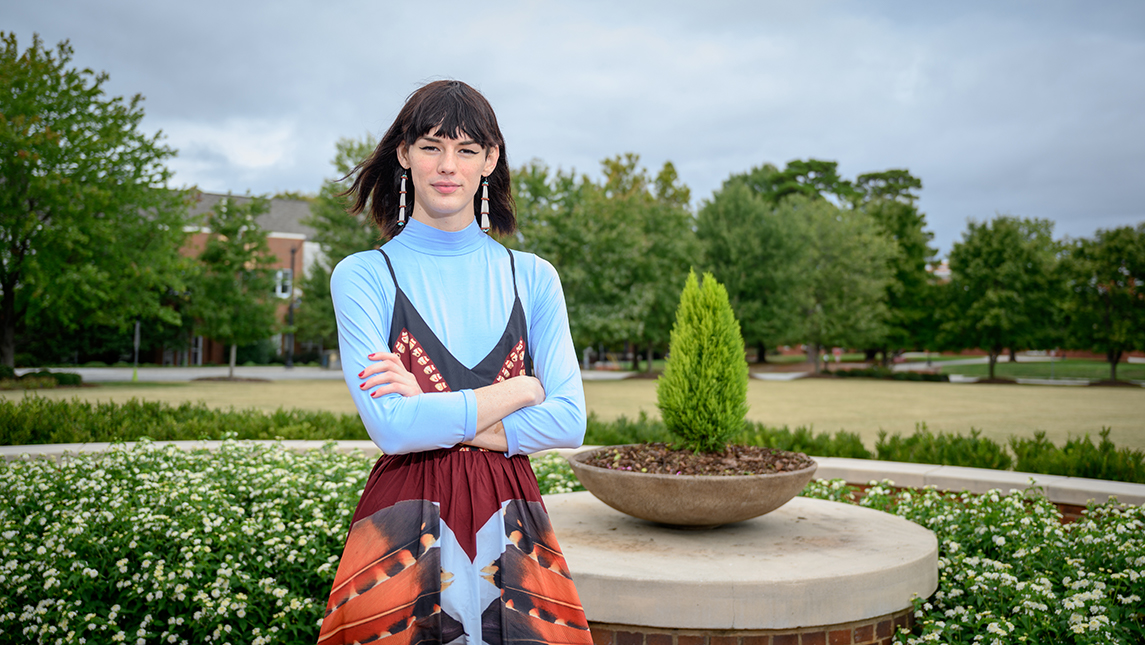
Every year, on the second Monday in October, Indigenous Peoples’ Day is observed in various cities and states across the country, acknowledging both Native American peoples’ resilient perpetuity and significant contributions to our society.
Indigenous Peoples’ Day was first recognized in 1992 when on the 500th anniversary of the arrival of Columbus to the Americas, the people of Berkeley, California began to question why Native people weren’t remembered in the same way as European descendants. In protest, the city celebrated Indigenous Peoples’ Day rather than Columbus Day, acknowledging that America is not just a nation built by and for Europeans. Since then, more and more cities and states adopt the holiday each year.
One of those states is North Carolina, which is home to more than 122,000 Native Americans and has eight historic tribes legally recognized by the state: Coharie, Eastern Band of Cherokee, Haliwa-Saponi, Lumbee, Meherrin, Occaneechi Band of Saponi, Sappony, and Waccamaw-Siouan.
Since taking office in 2017, Governor Roy Cooper has issued a proclamation each year that officially observes the holiday in the state. In 2018, the Greensboro City Council approved a resolution proposed by former UNCG student and Miss Indian N.C. Henrietta Raven Dial Stanley that the city officially recognizes Indigenous Peoples’ Day. On Friday, Oct. 8, President Biden issued the first-ever presidential proclamation of Indigenous Peoples’ Day.
Sky Kihuwa-Mani is a senior biology major and neurobiologist at UNC Greensboro. She has served as the president of the Native American Student Association (NASA) since 2019. Her family is Onondaga and Tuscarora primarily, and she is connected by kinship to the Haliwa-Saponi Indian tribe in North Carolina.
In this interview, Kihuwa-Mani discusses the significance of Indigenous Peoples’ Day to herself, her community, and beyond.
Talk to me about the significance of Indigenous Peoples’ Day. Once the holiday began being observed in more cities and states, what impact did that have on the North Carolina Indigenous community and beyond?
I was here in Greensboro during my freshman year when the city of Greensboro voted to change Columbus Day to Indigenous Peoples’ Day, and NASA attended the city council meeting where the proclamation was passed. The city did that in large part due to the activism of the indigenous community here in Greensboro and the surrounding areas, many of whom are connected intimately with our organization, and it’s been this grassroots organizing effort that has really gotten us to where we are.
When the proclamation was made in the state of N.C., I remember a great celebration. I remember many of my friends and peers posting celebratory social media posts and were very happy.
But overall, I think there are generally two camps when it comes to Indigenous peoples’ feelings towards Indigenous Peoples’ Day. One camp is very celebratory and very excited about the progress that has been made. The other feels that it’s not enough – that the government is doing it for optics when behind closed doors, they’re trying to do things like repeal the Indian Child Welfare Act, which has huge ramifications for all of the tribal sovereignty. So, I think from my assessment of seeing other people around the country responding to Indigenous Peoples’ Day, there is celebration to be had, but there’s also recognition that more work needs to be done.
What does Indigenous Peoples’ Day mean to you?
For me, I think it is a way for conversations to take place. I think that especially on the East Coast, and even more specifically in the Southeast, there’s sort of a lack of consciousness around the existence of Indigenous people. I hear from a lot of my non-Indigenous peers that they don’t think of Indigenous people as existing in the modern world. A lot of people always use the past tense when referring to Indigenous people. They don’t realize that North Carolina has the largest Native American population on the East Coast. So, it’s really interesting how Indigenous people have been pushed to the margins of society, particularly here in North Carolina, and have been, in many ways, erased and rendered invisible. So, I think Indigenous Peoples’ Day is a wonderful opportunity for us to address that and start having conversations about Indigenous people and how we can help the communities and help subvert the ongoing oppressions we face.
In addition to conversation, how else can non-Indigenous celebrate Indigenous Peoples’ Day?
Engage with media that is about Indigenous people in the modern world. There’s this really wonderful documentary called “Rumble” which is about how Indigenous music influenced popular American music – from rock to blues, and everything in between. And very recently, there have been a lot of really wonderful television shows like “Reservation Dogs” on Hulu and “Rutherford Falls” on Peacock. There are also lots of podcasts for educating oneself. One of my all-time favorite podcasts is called “All My Relations,” which talks about all kinds of contemporary issues facing Indigenous people. Another is “This Land,” which is about the recent political strife and current push towards subverting tribal sovereignty, but centers around this one federal law, which is called the Indian Child Welfare Act. I also encourage you to tell your Indigenous peers “Happy Indigenous Peoples’ Day” and share your sentiments on social media. This makes people more aware of the holiday and our community.
Story by Alexandra McQueen, University Communications
Photography by Martin W. Kane, University Communications


